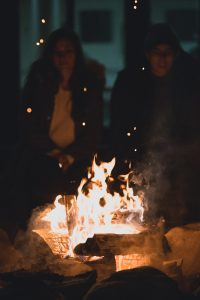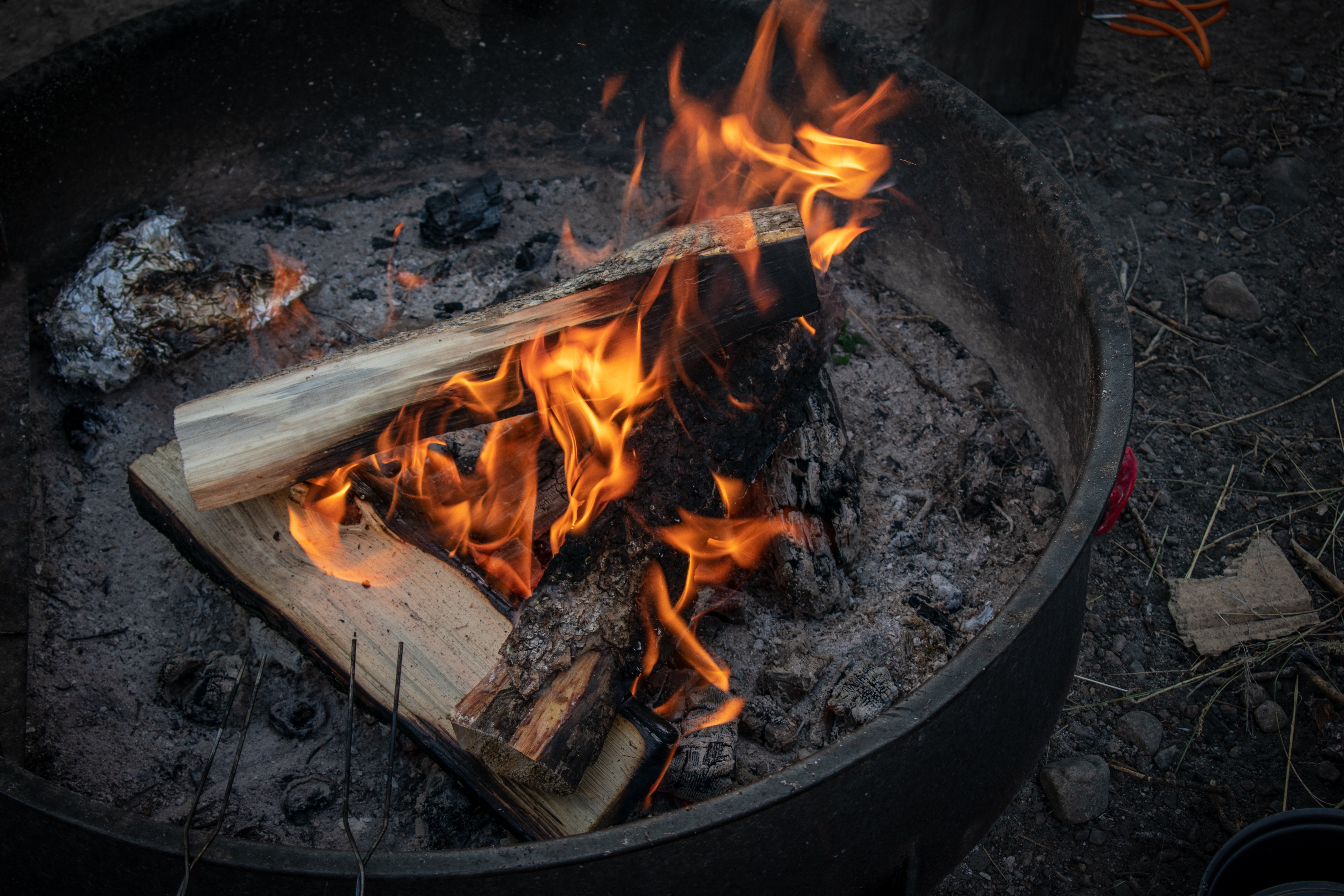For many of us, it’s not camping if there isn’t a campfire to sit around in the evening or one over which to cook breakfast.
Campfires are essential to the camping tradition, not just for their warmth or food cooking ability, but because they seem to bring out the philosopher and ponderer in each of us. Around it, we tell stories, recount favorite memories, and spend time together in a way that is quiet, still, and reflective. Still, it’s important to be safety-minded and conscientious so that the fire can be enjoyed, and the people and surroundings stay unharmed, too.
Make sure burning is still allowed.
Michigan has had quite a few burn bans in the past several years thanks to warmer summer weather and less rain. Always check with the county that a burn ban isn’t in effect and that burn permits are still being issued by visiting the Michigan DNR website. Your campground should also know this information. Also, make sure it’s not too windy for a fire, either. If it is, you’ll have to use the grill, stove, or brown bag your meal.
Supervise.
An adult should be around an active campfire at all times. Children should be given guidance as to how to behave around a campfire as well as where to sit away from the smoke and heat. Children should not be allowed to play or run near a campfire, and if they are helping to cook or are roasting s’mores, careful supervision is required. Make sure there is nothing around the fire pit that could cause someone to accidentally stumble in.
Be prepared.
Keep a bucket of water or sand and a shovel nearby in case the fire gets out of hand, or at least for use at the end of the night. It’s best to dump enough water on a fire to make it stop completely before turning in. Move the logs and sticks around to get underneath for hidden embers. Simply covering it can keep embers smoldering so water is the best thing to use. Know where to access a fire extinguisher, whether you bring it out to be ready just in case or it’s kept in the RV.
 Avoid from using flammable liquid to ignite your fire.
Avoid from using flammable liquid to ignite your fire.
Fumes can get trapped and build up underneath logs and branches, which can cause a small explosion or serious accident. Use small branches or paper or a fire starter to get things going. If you light with a match, discard the match into the fire. Avoid from using pine needles and sticks, especially if you’re planning to cook anything over the fire, and stick with hardwoods.
Use the designated area.
Campgrounds, RV parks, and RV resorts usually have designated fire pits already set up and ready at each site. Don’t create your own fire somewhere else at the site or when along the trail.
Don’t transport wood from home.
To reduce the spread of invasive species, such as ash bore, and tree diseases, such as oak wilt, it’s best to leave any firewood you already have at home and purchase local firewood from the campground when you arrive.

